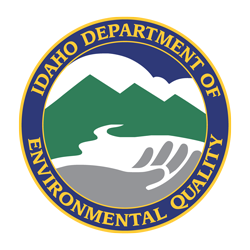DEQ uses guidance documents to help DEQ staff, the regulated community, and the general public better understand how individual rules will be applied to certain situations. Completed DEQ guidance documents are available on our Guidance page.
DEQ uses a process similar to the legislative negotiated rulemaking process to develop guidance documents once a rule has been adopted. Guidance documents currently in development for each bureau are found under the appropriate tabs below.
Guidance documents are intended to provide assistance to the public and DEQ staff in implementing applicable rules and programs. Guidance may include memoranda, manuals, policy statements, interpretations of law or rules, and other material that are of general applicability, whether prepared by the agency alone or jointly with other persons. Guidance documents are intended to serve as primary reference tools to assist those within the regulated community interpret and comply with rules promulgated to the agency by the State Legislature. Finalized guidance documents for each bureau are found on our Guidance page.
Request meeting records by using our Public Records Request form.
To gain the approval of the program, DEQ must have rules in place that meet the requirements of the Clean Water Act and federal regulations. These rules establish procedures for submitting permit applications, writing and issuing IPDES permits, filing appeals, fee structures, developing general permits, and other required components of an NPDES program. DEQ negotiated certain elements of the IPDES program, including the permit application process, the appeals process, the fee structure, and compliance enforcement with IPDES permits. For required NPDES program components, federal regulations have been incorporated by reference into the proposed rules.
The technical guidance committee will help DEQ staff prepare guidance documents related to the implementation of IDAPA 58.01.25. Topics discussed may include applying for and composing permits, collecting and submitting information for the individual or general discharge permits, and documenting procedures, practices, and requirements for permit writers.
Public Comment Opportunities
There are no public comment opportunities at this time.
Use our Public Records Request form to request previous records.
DEQ’s Surface Water Bureau undertakes guidance development in response to new or updated rules. Guidance is often necessary to interpret the rule and how to implement elements of the rule. Currently, the Surface Water Bureau is finalizing guidance documents for use attainability analysis (IDAPA 58.01.02.102), antidegradation (58.01.02.051 and 052), and aquatic life criteria for selenium (IDAPA 58.01.02.210 and 287).
Every three years DEQ is required by federal regulations (40 CFR 131.20) to hold public hearings to review applicable water quality standards. As part of this review, the state is required to hold one or more public meetings to gather public input on the state’s water quality standards.
Method for Participating and Submitting Comments
Those interested in participating in the guidance development are encouraged to attend the scheduled meeting listed below. Additional meetings may be scheduled. The meeting will be held by telephone and video web conferencing.
Public Comment Opportunities
There are no public comment opportunities at this time.
See the previous presentations and written public comments. Request the previous records using our Public Records Request form.
DEQ’s Water Reuse Permit Program, formerly called the Wastewater Land Application Permit (WLAP) Program, is an established and well-developed state regulatory program. Together, the regulations and program guidance provide a framework for permitting reuse facilities so that their operations effectively address environmental and aesthetic concerns, as well as provide needed flexibility for the permitted facility to operate efficiently and economically.
This document is the latest edition of Idaho’s Reuse Guidance (Guidance), incorporating nearly three decades of regulatory and facility experience, as well as related technical advances that have occurred in that time.
Method for Participating and Submitting Comments
Those interested in participating in the guidance development are encouraged to send written comments on the draft guidance when it is posted for public comment. At this time, no public meetings are scheduled.
Public Comment Opportunities
There are no public comment opportunities at this time.

